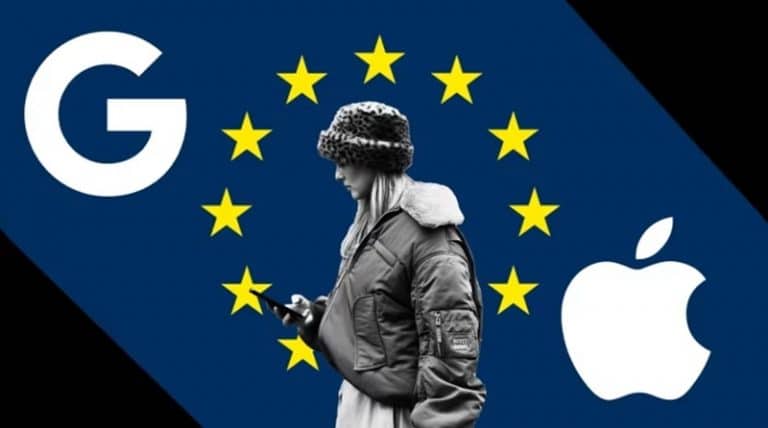EU Cracks Down on Google and Apple Compliance

The European Union has intensified its scrutiny of major tech giants Google and Apple, warning them to adhere to the new Digital Markets Act (DMA) or face significant fines. Google is accused of favoring its own services in search results and restricting app developers from promoting alternative offers outside its Play Store. Meanwhile, Apple is urged to relax its control over the iPhone operating system to comply with the EU’s antitrust regulations. This escalation could further strain relations with the United States, particularly with former President Donald Trump, who has criticized the EU’s approach to American companies.
Google Faces Potential Fines for Non-Compliance
The European Commission has issued a stern warning to Google, indicating that the company may face hefty financial penalties for allegedly violating the DMA. The Commission claims that Google has been prioritizing its own services within its search platform, thereby undermining competition. Additionally, the tech giant is accused of preventing app developers from directing users to better deals outside of its Play Store, which could stifle innovation and consumer choice. Teresa Ribera, the EU’s antitrust chief, emphasized the importance of fostering a culture of compliance with the DMA. She stated that the focus is not merely on imposing fines but on ensuring that companies adhere to the regulations designed to promote fair competition. Google has previously faced scrutiny from the EU, including a record €2.4 billion fine for abusing its monopoly power in the search market. The current situation marks a continuation of the EU’s efforts to hold tech companies accountable for their market practices.
Apple Urged to Open Its Ecosystem
In a parallel development, Apple has been directed to ease restrictions on its iPhone operating system to align with the DMA. While the EU’s action against Apple does not come with immediate financial penalties, it represents a significant shift in how the company may operate in Europe. Apple has expressed concerns that the EU’s regulations could compromise user privacy and security, particularly regarding access to sensitive features by rival companies like Meta Platforms Inc. Despite these claims, Ribera has countered that Apple’s arguments may be more about protecting its business model than genuinely safeguarding consumer privacy. The EU’s push to open Apple’s ecosystem is seen as a critical step toward enhancing competition in the tech sector. Apple is also under investigation for potentially stifling developers’ efforts to offer lower subscription prices outside its App Store, which could lead to further fines in the near future.
Impact on US-EU Relations
The ongoing tensions between the EU and major American tech firms could have broader implications for US-EU relations, particularly under the scrutiny of former President Donald Trump. Trump has previously criticized the EU’s antitrust fines, likening them to tariffs against American businesses. As the EU continues to pursue compliance from Google and Apple, any resulting penalties may be viewed as provocations by the US government. Despite potential backlash, EU regulators appear determined to enforce the DMA. Ribera has reiterated that the Commission will not shy away from making tough decisions, emphasizing the need for accountability in the tech industry. The DMA allows for fines of up to 10 percent of a company’s global annual revenue, a significant increase compared to traditional competition penalties. As the situation unfolds, both Google and Apple will need to navigate these regulatory challenges carefully to avoid severe repercussions.
Observer Voice is the one stop site for National, International news, Sports, Editor’s Choice, Art/culture contents, Quotes and much more. We also cover historical contents. Historical contents includes World History, Indian History, and what happened today. The website also covers Entertainment across the India and World.

